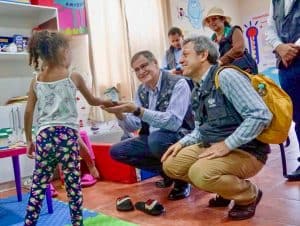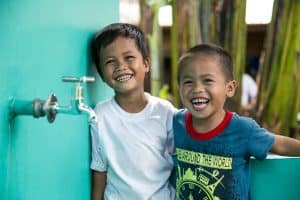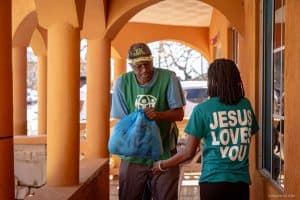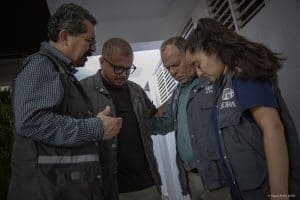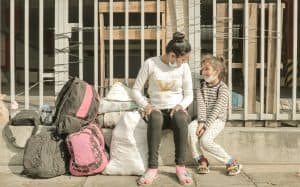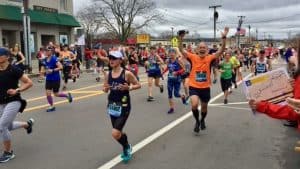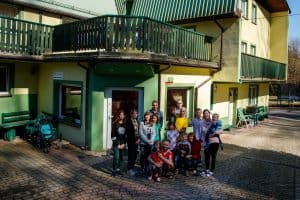Before eating
Before cooking
Before giving food to the child
Wash your hands!
It is not uncommon for Balilo Pedro Papy to hear those lyrics on the air while working in communities in the Kitangua health zone of the Democratic Republic of Congo (DRC).
After going to the latrine, Mom washes her hands
After changing the child’s diaper, she washes her hands
After coming from work, Dad washes his hands
Health is priceless!
Papy, an ADRA Water Sanitation and Hygiene (WASH) technical assistant, wrote the song to inspire people to develop new sanitary habits. His song has been played on the radio in the Kasai province since 2021. He is hoping more listeners commemorate Water Day and enhance cleanliness throughout the year because in his country radio is king.
“Not a lot of people would have a TV, not a lot of people will have access to the internet. But radio, yeah, everybody listens to radio.”
The ADRA worker began singing as a child, watching his mother sing with the church choir. In 2008, he started singing professionally, creating a group called The Voice of Worship. They sang gospel music and created songs bringing awareness to what was happening in the country.
Papy learned about ADRA and serving his community from his father, who was a leader in teaching people how to combat HIV and AIDS, so he followed in his dad’s footsteps to bring attention to hygiene habits.
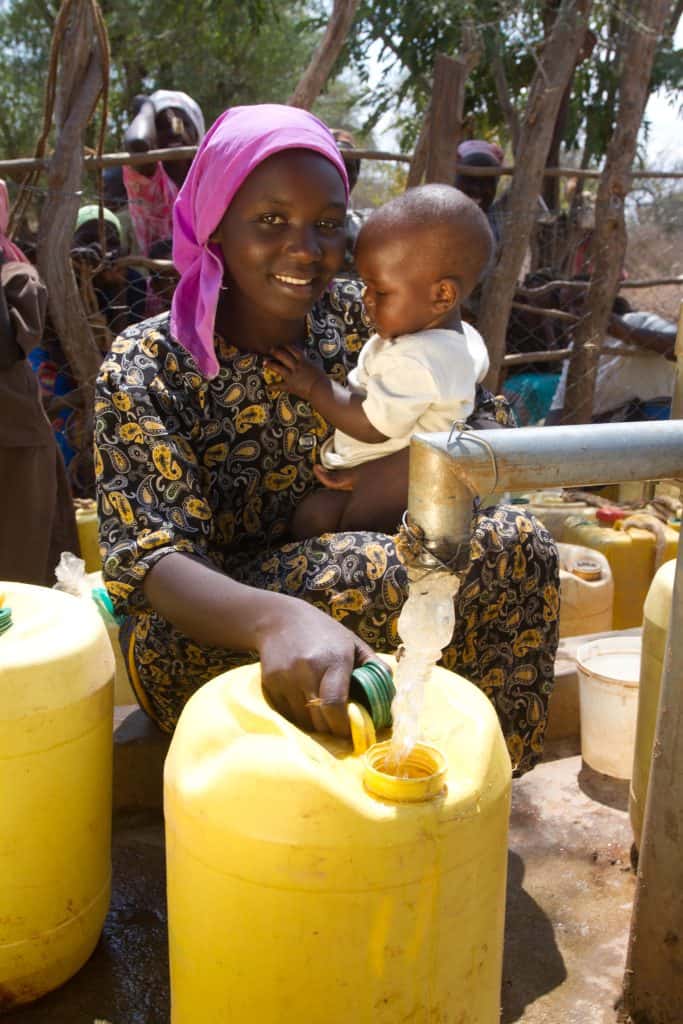
Papy’s song is a response to the sickness he witnessed in communities while working on programs to restore water sources in Kasai’s rural villages.
“The first problem in the community was the higher level of disease that comes from the water,” Papy mentioned.
The primary reason was that people were drinking contaminated water, failing to wash their hands, and engaging in open defecation rather than installing and using latrines.
World Health Organization studies show that at least 12 percent of the Congolese population practice open defecation. It’s something their parents, grandparents, and great-grandparents have always done, according to Papy.
“You find someone that is over 30 years old, used to drink the water that is not drinkable,” Papy mentions through a translator. “… [When] you come to the village you need to sensitize them, telling them this water that you guys are drinking is not good. You need to clean or treat the water before consuming it. That means changing their behavior. It’s a big, big challenge.”
The people are already working hard just to access the water. Sometimes a water source can be a third of a mile or more away from home and it requires traversing a big mountain, Papy continued to explain through a translator. “Many times, it is children and women, including those who are pregnant, who are responsible for collecting the water.”
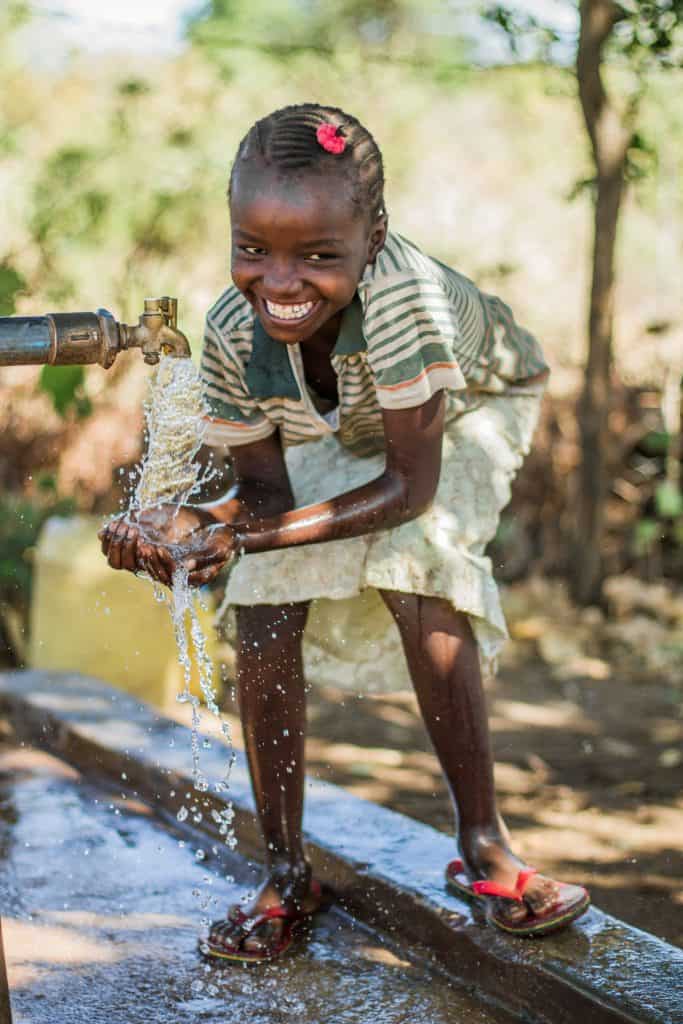
The women and children must bring the water from afar uphill distance and then treat it before drinking it. This precious water is then used to wash their hands after using the bathroom, cleaning up children and babies, or visiting public places outside the home.
To give communities more access to water, ADRA is installing water basins, and training masons to build latrine pits through a partnership with the U.S. Agency for International Development (USAID).
ADRA workers also distribute sanitation kits, which include a bucket, a spigot, and tape for assembling a washing station. Yet a lot more assistance is needed to avoid waterborne infections in communities because sanitation items are costly for many DRC residents.
Based on World Bank figures, the average DRC citizen makes less than $1.90 per day. Pedro claims the daily income is substantially lower, estimating $1 to $1.50 in the village of Ndjidji, where he worked the day, he was interviewed for this story.
Most of the region’s population are farmers who rely on the vegetables and fruits they raise or the chickens they care for, he noted. However, the cost of preventing infections like waterborne diseases like cholera is worthwhile.
Writing a song was just one way to encourage prevention and change behavior. Plus, it allowed him to share his creative talents.
Papy adds that the words and melody of his hygiene song came effortlessly by God’s grace, allowing him to complete it in a week.
Now that his song has been on the air for a while. Papy says he’s heard people with cell phones using it as a ringtone.
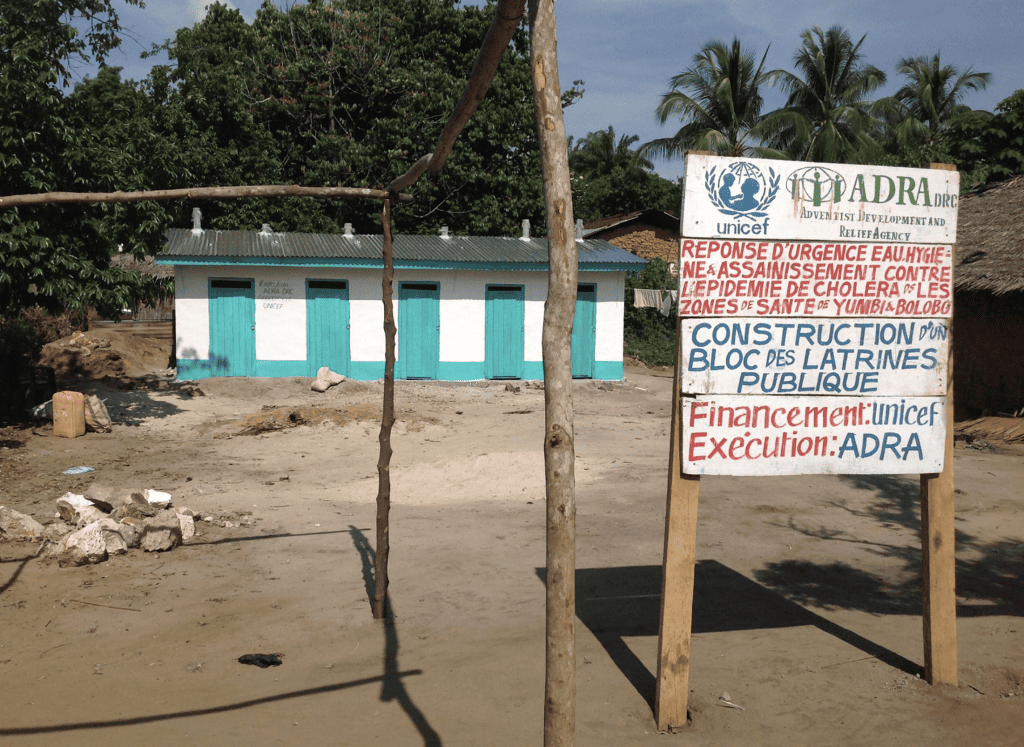
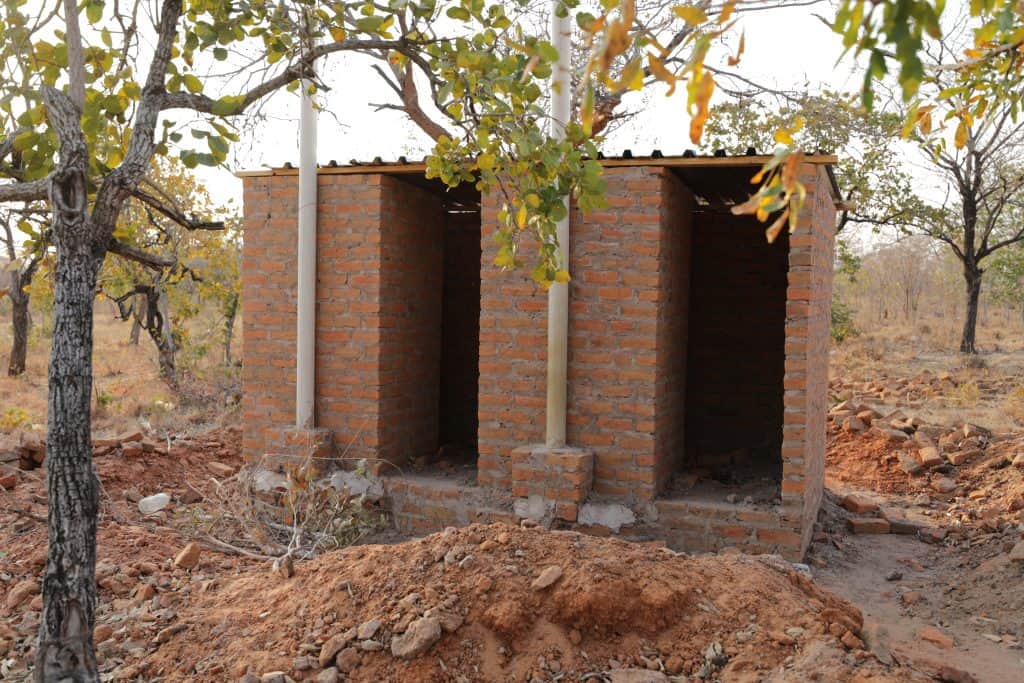
The most significant benefit, he believes, is the decrease in the number of people visiting hospitals for waterborne infections as more people install latrines. When the project began, the targeted families in Kamonia, Kitangua, and Kanzala did not have latrines. According to Papy, there are currently 1,442 latrines installed in these three health zones.
He believes that the most significant benefit may be the decline of hospital visits for waterborne diseases as more people install latrines. When the project started, the targeted families in Kamonia, Kitangua, and Kanzala did not have latrines. According to Papy, there are now 1,442 latrines in these three health zones.
The Good Hygiene song is just one example of how ADRA’s dedicated field workers, like Papy, use their talents to promote a safer environment and keep communities healthy and thriving.
###
